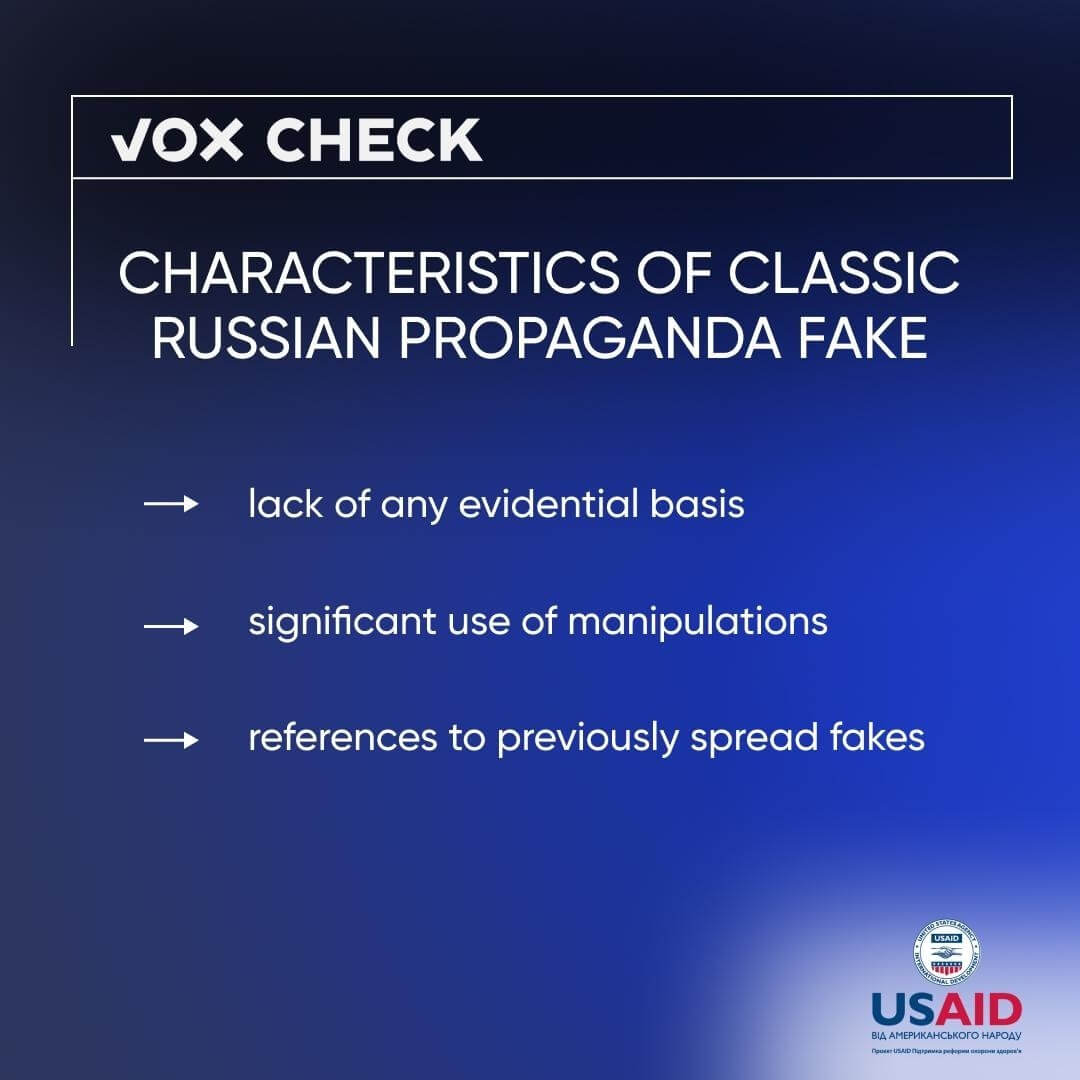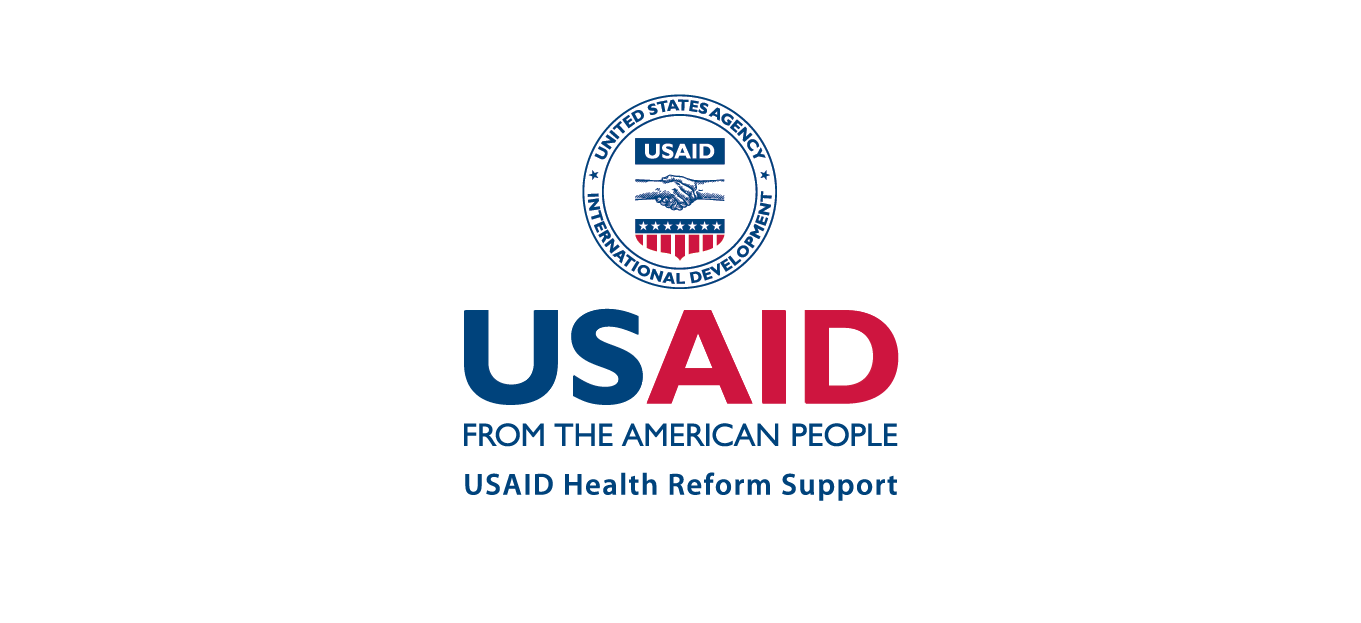The Center for Countering Disinformation of the National Security and Defense Council of Ukraine has investigated the dissemination of hostile campaigns regarding “black transplantology” since 2014 in the information space. During this time, terrifying tales about “black transplantologists” have transformed into a consistent narrative, which is continuously used as a tool to influence vulnerable segments of the population.
With the support of the USAID Health Reform Support project, VoxCheck analyzes and refutes public health narratives spread in the information space of Ukraine, Belarus, and russia on a weekly basis.
Chronology of the spread of fakes about “black transplantology” in Ukraine and Europe
The creation and dissemination of fakes about “black transplantology” usually occur against the backdrop of resonant events that supposedly set the conditions for them. Similar fakes were actively produced during the Revolution of Dignity, where “Maidan activists” were portrayed as probable victims of transplantologists. After the Russian invasion and the start of the Anti-Terrorist Operation in Eastern Ukraine, this role shifted to Ukrainian defenders, and the narrative of “organ trafficking” moved to the frontlines. Articles began to emerge in European media, drawing parallels between Ukraine and Kosovo. However, accusations of the Army liberating Kosovo engaging in organ harvesting from soldiers and subsequent resale were not substantiated. There is no evidence to support such activities in Ukraine outside pro-Kremlin media sources either. Overall, Russia propagates the same narratives in Europe as in the Ukrainian information space, using pro-Russian foreign media and bots on social networks.
The example of Kosovo continues to be used even now. We recently debunked a fake claim that the “black transplantology center” moved from Kosovo to Ukraine in 2014. In Kosovo, there were indeed illegal organ harvesting cases from foreigners at the “Medicus” clinic. This was possible because Kosovo lacked a law regulating organ transplantation. In contrast, in 2018, Ukraine adopted the “Law on the Application of Transplantation of Anatomical Materials to Humans,” which clearly prohibits foreigners, prisoners, individuals with mental disorders or hereditary diseases, pregnant women, and those who were previous donors from being organ donors.
Since 2017, fakes about “black transplantology” have become part of a disinformation campaign against healthcare reform in Ukraine. Within the framework of this campaign, legislative changes are discredited. In 2020, a fake claim was spread that Ukraine was planning a medical genocide through the implementation of “criminal” laws. Among other things, they mentioned the draft law №3625 regarding the rights of children and incapacitated persons. It was falsely asserted that the law would legalize experiments on humans, organ harvesting without permission, and total control over the human body, which was not true. In reality, the draft proposed expanding the circle of individuals who could give consent for diagnosis, prevention, and treatment by including authorized representatives of these individuals. The Scientific-Expert Administration of the Verkhovna Rada of Ukraine found such a proposal unsubstantiated, and the draft law was not adopted.
At the beginning of 2022, a new version of the “Law on the Application of Transplantation of Anatomical Materials to Humans” was passed. False reports claimed that it simplified the procedure for organ harvesting without the person’s consent and legalized the black market for organ trafficking. However, the new law actually removed excessive bureaucracy and detailed requirements from the transplantation process. There was no mention of legalizing the black market, as the law explicitly prohibits buying and selling organs. Furthermore, the law prohibits posthumous organ harvesting from orphaned children, incapacitated individuals, those who died in combat, or individuals whose identity has not been established. It also prohibits organ harvesting when there is a written objection to the posthumous donation provided during the person’s lifetime.
After the full-scale invasion, the narrative about the dominance of black transplantologists was revived. As before, the wave of spreading such narratives coincides with active combat operations or significant events, such as Children’s Day. Overall, since 2022, there has been a focus on disseminating disinformation specifically targeting children. In doing so, the Russians attempt to demonize Ukrainian defenders and portray the occupiers as “peacekeepers.” For example, in late May 2022, a news article titled “What the Red Cross Concealed in Ukraine: Russians Found Hundreds of Medical Records with Children’s Organs in Mariupol” appeared on the hostile media resource “Tsargrad TV.” The article accused representatives of a humanitarian organization of keeping records of children’s organs, insinuating their involvement in organ trafficking. The International Committee of the Red Cross reacted to the allegations and refuted them.
In July 2023, an interview of a supposed “former OSCE employee” began to spread through the network, claiming that Ukrainian battalions were trafficking children’s organs. Moreover, they allegedly exported these organs abroad in containers under the export code for grains. This fake was likely launched to discredit the grain deal between Ukraine, Turkey, the UN, and Russia, which is set to expire on July 17. Currently, negotiations are underway to extend the agreement, and while Ukraine and Turkey plan to continue its implementation, Russia has repeatedly sabotaged it and expressed dissatisfaction with the agreement.
Typical methods of creating “transplantological” fakes include:
Fake witnesses or experts. Propagandists involve individuals to falsify evidence. It is enough to record material once and then use it for years. For example, in 2015, a video appeared featuring a Russian-speaking man who concealed his identity and claimed to be an “SSU (Ukraine’s Security Service) employee.” He alleged the existence of a special medical brigade that received orders from Western countries to sell the organs of the deceased in the Anti-Terrorist Operation zone. The SSU denied this information in the same year. However, the video continues to be used for propaganda purposes, including in 2022, when it was promoted on TikTok.
Fabricated “documentary” videos. Propagandists try to add credibility to their fabrications by presenting them in a pseudo-documentary format. Typically, these videos consist of edited video clips, out-of-context interviews, or interviews with fake individuals. Often, video fragments are taken from other materials that surfaced online earlier and relate to completely different news events.
For what purpose does Russia spread fakes about ‘black transplantology’ in Ukraine?
Discrediting the Ukrainian government. By accusing the Security Service of Ukraine, the Ministry of Health of Ukraine, local authorities in frontline cities, or individual political figures of being involved in illegal organ trade or supporting it, Russia seeks to discredit the institution of state power as a whole, affecting the level of trust the population has in the government. The less people trust the government, the more vulnerable they become to the spread of panic.
Provoking panic among the population. Fabrications about terrifying “black transplantologists” who kidnap people, and children, and sell them for organs are aimed at provoking panic. When people panic, they find it harder to think critically. In the context of war, panic poses a particular threat as people need to be ready to react quickly to government announcements.
Damaging Ukraine’s international image. By spreading false claims about illegal organ trade in Ukraine, Russia creates the perception that the country’s government supports the described criminal activity. This serves as a kind of informational alibi that allows Russia to legitimize its military aggression further.
This information piece was produced with the assistance of the United States Agency for International Development (USAID), provided on behalf of the people of the United States of America. This article’s content, which does not necessarily reflect the views of USAID, the United States Government, is the sole responsibility of Deloitte Consulting under contract #72012118C00001.
Attention
The author doesn`t work for, consult to, own shares in or receive funding from any company or organization that would benefit from this article, and have no relevant affiliations




